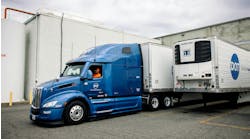The companies who provide products and services for maintenance of commercial vehicles seem to have a special fondness for market research.
Think about it. How many times have you received a letter in the mail, a phone call or an e-mail asking you to share your opinion, answer a few questions or even join in some group discussion? It seems like it happens all the time.
The question is: Should you cooperate, or are these requests just a gimmick to sell you something you don’t need? The answer is: It depends on the questions they ask and how they ask them.
You can usually separate the sheep from the goats pretty easily. If it is legitimate research, you will not usually be asked to buy anything.
They may ask you to try a product or service, but it will be on their dime, or at least with a provision that you come out well ahead financially and are compensated for your risk.
Straight up market research offers do not ask you to pay for voicing your opinion. In fact, the opposite is normally the case.
They will often compensate you for the trouble of trying a new product or providing feedback about performance and satisfaction. This may be in outright gifts, a donation to the charity of your choice, a chance to win a valuable prize or a copy of the final report.
A Normal Process
It is normal for your regular suppliers and their competitors to ask, in one way or another, if you are happy with what they provide or what you can buy.
They use this information to grade the performance of their products, services and the people who are supposed to be available when you need them.
They may even ask about your opinions regarding some fairly intimate information, such as pricing and fulfillment. That’s not unusual, and generally it is okay.
Use your own judgment when answering these questions. If you are concerned that your answer may be used to your disadvantage, then just pass on that question and go on to the next one.
The feedback you provide is used to develop new products and services. It is also helpful in tailoring customer service programs, warranties, advertising messages, special promotions and other marketing activities of your suppliers.
As a rule, before they spend big bucks on a new initiative, suppliers will do some market research to gauge how you and other people like you are likely to respond.
You may have seen it, I certainly have, where something you hear about in a survey or group discussion never comes to market.
Then there are other times when, just by chance, maybe, you have the inside track on development of a new product or service that becomes the next big thing - like LED lighting, or special lubricants, or composite materials, or wide-based tires, or a particular type of emission control system, or satellite communications and engine telemetry.
Group Response
The way surveys and other market research studies tend to work is to average and group response. One person’s answer to a question is not all that helpful by itself.
It is only when the answers of a sufficient number of people are combined that the general preferences, strengths and weaknesses of a new product or service come into focus.
As a rule, your answers will not be considered alone. They are usually combined with the answers provided by a fairly large group of people, perhaps dozens, and, typically, hundreds or even thousands of participants in order to provide conclusive results.
For sure, your individual opinion counts, but mainly in the context of what you and a substantial group of other people in your same situation have to say.
To Your Benefit
One interesting lesson learned in conducting commercial vehicle market research over the years is that the participants often say they really appreciate taking part in the process.
That statement seemed curious at first. After all, the objective of market research is to benefit the clients.
I have not really seen any direct short-term benefit to respondents in exchange for their cooperation, aside from the incentive being offered.
But they are sincere in saying that participating in the research is beneficial for them and their fleets.
They revealed that they usually learn a lot about how other people are thinking regarding a new service or technology.
Taking part in research leads fleet maintenance professionals to consider, in detail, what is important and what is not so critical.
By making a thorough examination of how they feel about the issues at hand, they are able to form more intelligent opinions and make better decisions on behalf of their fleets.
As it turns out, the market research process is, and should be, a two-way street with benefits for those who respond, as well as those who solicit opinions.



